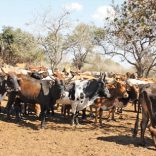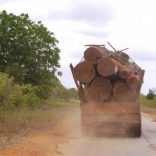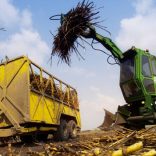Maputo province imposes animal movement restrictions in Sábie following foot-and-mouth outbreak
Forest exploitation in Nampula: Applications now subject to ‘fine-tooth comb’ – Mozambique

File photo: Notícias
The forestry and wildlife sector in Nampula province has decided to “increase the accuracy of the licensing requirements of simple and concessionary forest operators, whose process was interrupted in 2015 by decision of the Council of Ministers”, Notícias reports.
The interruption was intended to permit a reorganisation of a flawed process, which was seeing authorisations being granted without obeying rules.
To illustrate the authorities’ tightening of the process, Provincial Forest and Wildlife Services Inspector Gilberto Nipanga said that in the first quarter of this year the sector received 58 applications for forest licensing, of which only seven were approved.
Among the requirements demanded, Nipanga referred to the need to give proof on means of felling and dragging, the need to guarantee inspection of the equipment in the yards of the timber companies, as well as the existence of a management plan that confirms the existence of forest potential in the area to be explored.
Mozambique bans logging and export of six species of wood
Mozambique: New restrictions on timber operations – AIM report
Obtala to review its operations in Mozambique due to new timber export rules
“We believe that some forestry operators can regularise their situation over time, which will gradually contribute to the increase in the number of licenses issued,” Nipanga said.
He added that during the first quarter of 2018 his sector carried out reforestation work throughout Nampula, having planted 14,866 seedlings of various plants over around 120 hectares.
As a result of inspection carried out in the period in question, 37 fines totalling 1.541 million meticais were applied. Of these, only 22 were paid, amounting to 836,000 meticais. The remaining 15 fines were submitted to tax foreclosures for compulsory collection.
This year, the inspectorate has already submitted four cases against forest operators who have avoided paying fines for various offences.
As to challenges for monitoring, Nipanga points out the need to improve communication between the various players involved in the process of expoiting natural resources, to increase the number multi-sectoral mobile teams, and update the location of the monitoring stations according to the new population dynamics.












Leave a Reply
Be the First to Comment!
You must be logged in to post a comment.
You must be logged in to post a comment.